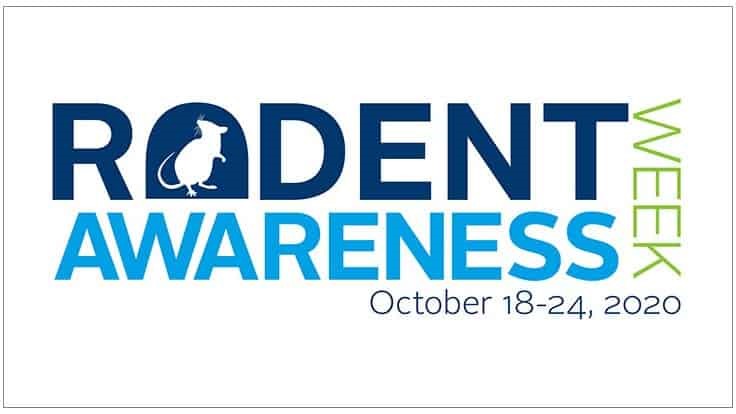Eight signs your home may have a rodent issue
Did you know that mice can drop up to 25,000 fecal pellets each year, an estimated 70 times each day? Does that get your attention?
We all know this year is anything but normal. However, there’s one thing that is normal this fall: Rodents will be active, potentially more this year than in years previous. California and northern Nevada residents need to be aware of the multiple threats that rodents present, should they gain access to your living space in search of food, water, and shelter.
Estimates from the National Pest Management Association place rodent activity in 21 million homes in the United States during the fall and winter months. Rodents gaining access to your home or apartment is easier than you might think, as rats and mice can squeeze through tiny openings and gaps – some as small as a dime.
October 18-24, 2020 is Rodent Awareness Week. Clark, your friendly pest, termite, and lawn care expert, would like to make you aware of the threats of rodent infestation, how to identify signs of an infestation, and what steps you can take to prevent rodents from getting inside.
Three rodent threats
- Rodents such as rats and mice are associated with numerous health risks. In fact, rats and mice are known to spread more than 35 diseases.
- Rodent droppings can trigger allergies and transmit foodborne illness such as Salmonella.
- Constant gnawing by rodents on electrical and computer wiring raises the threat level of an accidental fire.
Signs your home may have rodents
Rodents often leave a calling card when they find their way into a home or apartment. Some are more subtle than others, but here are eight signs to look for:
- Droppings: Rodent droppings are a sure sign that rats or mice are present, and will indicate the type of rodent, the size of the infestation, and where they are most active. Mouse droppings are small, less than one quarter inch, and pointed on both ends. Rat droppings are a half inch or larger. New droppings are shiny and putty-like in texture, while old ones are hard and crumbly. Varying sizes in rodent droppings will indicate that juveniles and adults are present, and lots of droppings may be an indication of a large infestation.
- Urine odors: Rodent urine has a strong musky odor. With large infestations, you can easily smell it.
- Gnawed holes: Gnawed mouse holes are small, clear-cut, and about the size of a dime. Gnawed rat holes are large, about the size of a quarter, with rough torn edges.
- Run and gnaw marks: Oily rub marks are left in places where rodents travel along walls. If rub marks smear, you know they are fresh. Gnaw marks on wood around the house also are a sign. Tooth marks about one eighth inch long are typical of rats, and small scratch marks are a sign of mice.
- Rodent pathways: Common rodent pathways are generally along interior walls, building foundations, ledges, pipes, electrical wires, conduits, tree branches, and fence rails.
- Nesting materials: Mice will shred paper, string, and other pliable materials to build their nests indoors. Norway rats nest outdoors in burrows deep in the ground. Roof rats typically nest above ground in attics, trees, or dense vegetation.
- Unexplained noises: Rodents are nocturnal. At night they often create scratching sounds as they run inside walls and along floors.
- Unusual pet behavior: Pets tend to act unusually when they hear or smell rodents in the house. They may appear extremely alert, bark, or begin to paw at spaces beneath refrigerators, stoves, or low-clearance pieces of furniture.
Next week, we’ll share tips on how you can prevent rodents from gaining access to your living spaces!
Clark Pest Control remains committed to safeguarding your home from pests during these challenging times. Our service technicians use such personal protective equipment as gloves, masks, and respirators, they practice social distancing, they call ahead to notifiy you before a service, and they adhere strictly to all Centers for Disease Control and Prevention guidelines when servicing inside or outside your home.
If you’re experiencing an issue with rodents in and around your home, call or text California’s trusted, friendly rodent and pest management expert, Clark, at (800) WE-NEED-YOU (936-3339) or send an e-mail to clarkcares@clarkpest.com.
Until next time, the pest management professionals at Clark Pest Control thank you for helping to keep unwanted pests out of your home and yard.



